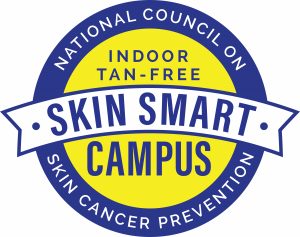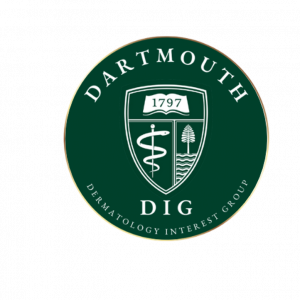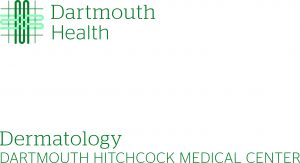Geisel students are proud to promote healthy skin habits! -Provided by the Dartmouth Geisel School of Medicine's Dermatology Interest Group (DIG) The Geisel School of Medicine at Dartmouth and Dartmouth Campus has been recognized as a Skin Smart Campus by the National Council on Skin Cancer Prevention. Ensuring the well-being of our students, we are providing a safe and healthy learning and living environment on and off campus, pledging to keep indoor tanning devices off our campus and our affiliated buildings. We also promote skin cancer prevention policies and education. The Indoor Tan-Free Skin Smart Campus Initiative is sponsored by the National Council on Skin Cancer Prevention in response to the 2014 U.S. Surgeon General’s Call to Action to Prevent Skin Cancer which concluded that there is a strong association between increased risk of skin cancer and indoor tanning use. Ultraviolet (UV) radiation exposure from indoor tanning is completely avoidable which allows for interventions to help reduce skin-cancer related illness and deaths. Numerous studies have found that skin cancer is the most common type of cancer in the United States, with melanoma as one of the most common cancers diagnosed among young adults. According to The International Agency for Research on Cancer Working Group, the use of indoor tanning facilities before the age of 35 increases the risk for melanoma by 75 percent. Geisel students are advocates for promoting sun protection and fostering healthy skin practices. The Upper Valley region's year-round engagement in outdoor activities, especially snow sports during the winter, increases students' exposure to potentially harmful UV radiation. Notably, snow can reflect up to 90% of the sun's UV rays, making protection essential even on cloudy or snowy days. In response, DIG is thrilled to introduce new accessible resources encompassing sun protection, skin cancer awareness, and early detection and prevention strategies, ensuring that the Geisel community is well-informed and equipped to safeguard their skin health. Did you know…


Provided by the Skin Cancer Foundation
Additional Resources for Sun Safety:
- Sun Safety Information from The Environmental Protection Agency
- The UV index informs our choices for sun protection. Click here to find your current UV level.
Scroll down to view a chart explaining the index levels & the steps we should take to protect our skin. - Additional information from Dartmouth's Dermatology Clinic
- The National Council Skin Cancer Prevention website
- Skin Smart Campus Website
- SPOTS: Sun Protection Outreach Teaching by Students
- DIG: Dermatology Interest Group at Dartmouth
Sponsored by Dartmouth Health's Department of Dermatology
